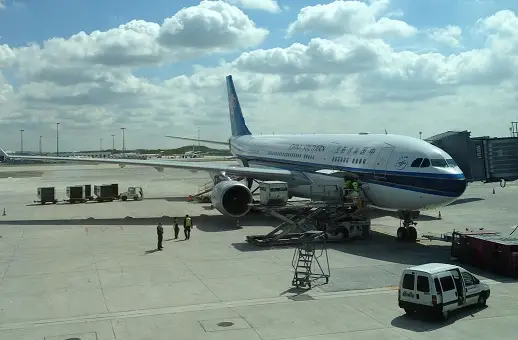With a fly-by at the Singapore Airshow on Sunday, China’s narrow-body C919 passenger jet, produced by the Commercial Aircraft Corporation of China (COMAC), achieved its first international flight. The aircraft is a rival to Airbus and Boeing.
China has made significant investments in an effort to challenge the dominance of the two Western airlines in the world passenger industry.
China has signaled that it will make an effort this year to expand the C919 and COMAC’s influence both nationally and globally. The first of the aircraft’s four certified versions started operating with China Eastern Airlines last year. The C919 is only certified for use in China.
The aviation industry is keeping an eye on COMAC’s positioning as a competitive option as Airbus and Boeing struggle to increase production and satisfy demand for new aircraft, while Boeing faces a number of challenges. Chinese media claimed in January that COMAC will invest tens of billions of yuan over the next three to five years to increase its capacity for producing C919.
The European Aviation Safety Agency (EASA) began validating the C919 last year, and China’s aviation regulator announced last month that it will continue the process this year.
There are just four C919s in operation in China, according to industry insiders, and the jet is only certified by Chinese authorities. Additionally, the C919 depends on global supply chains.
Nonetheless, COMAC is receiving increased attention due to the supply shortage that is affecting the aviation sector as a whole and testing the anticipated full recovery and subsequent expansion of civil capacity in Asia.
According to Adam Cowburn of Alton Aviation Consultancy, “we have also noticed a growing trend where clients are including the C919 option in their fleet evaluation.”
In 2023, two C919s were delivered. According to aviation consultancy IBA, 7–10 C919s might be delivered by 2024.
“With Airbus and Boeing narrow-bodies in the A320neo and 737 MAX families sold out for most of this decade, the C919 has a strong opportunity to gain market share, particularly in its domestic market,” said Mike Yeomans, president of aviation consulting firm IBA.
“The immediate challenges for COMAC are around production to meet local demand and certification to penetrate international markets,” said Yeomans.

